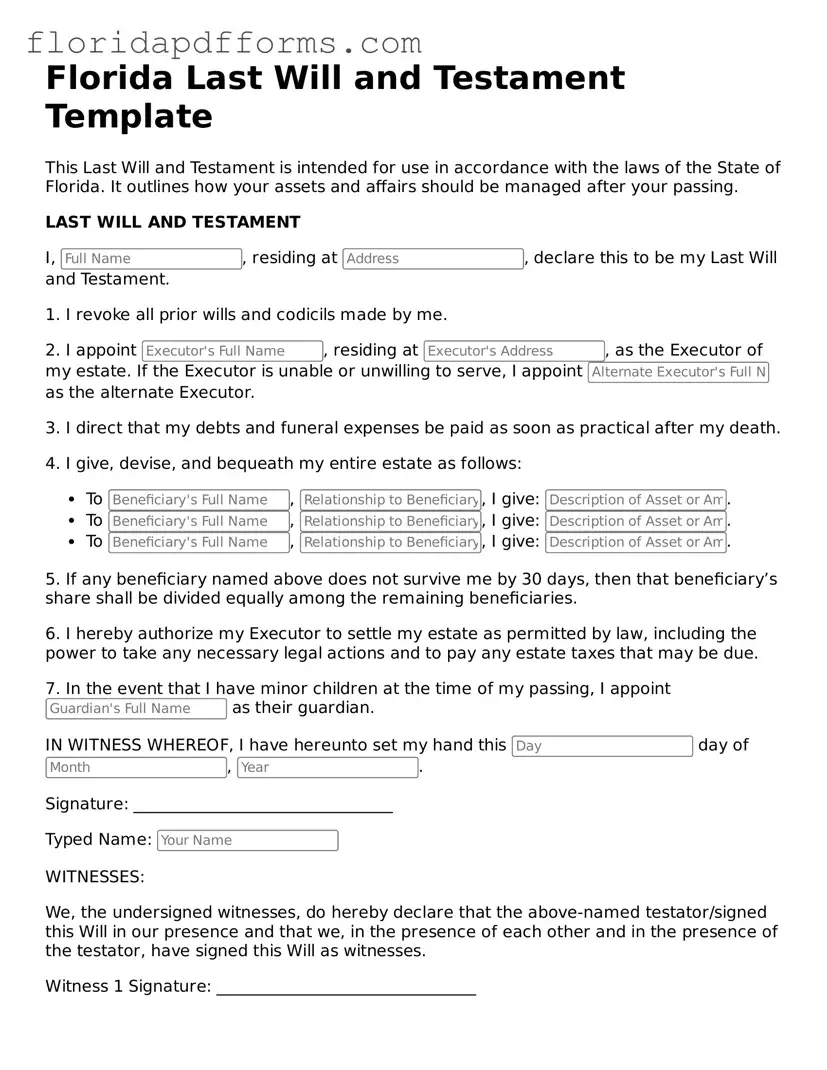Official Last Will and Testament Template for Florida
A Florida Last Will and Testament form is a legal document that outlines how a person's assets and affairs will be handled after their death. This essential tool ensures that your wishes are respected and that your loved ones are taken care of according to your preferences. To get started on securing your legacy, fill out the form by clicking the button below.
Modify Last Will and Testament Now

Official Last Will and Testament Template for Florida
Modify Last Will and Testament Now

Modify Last Will and Testament Now
or
⇓ Last Will and Testament File
Don’t stop halfway through your form
Finish your Last Will and Testament online with quick edits and instant download.